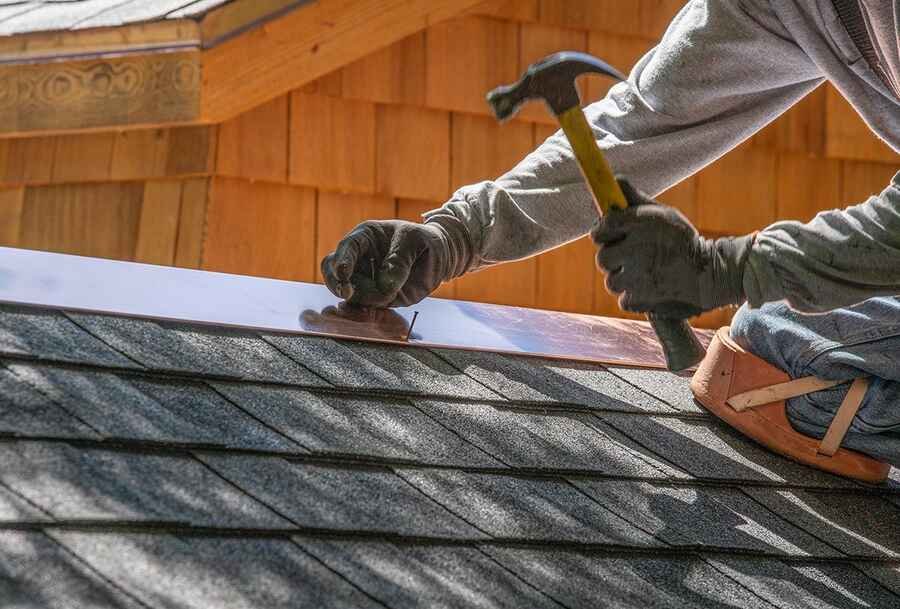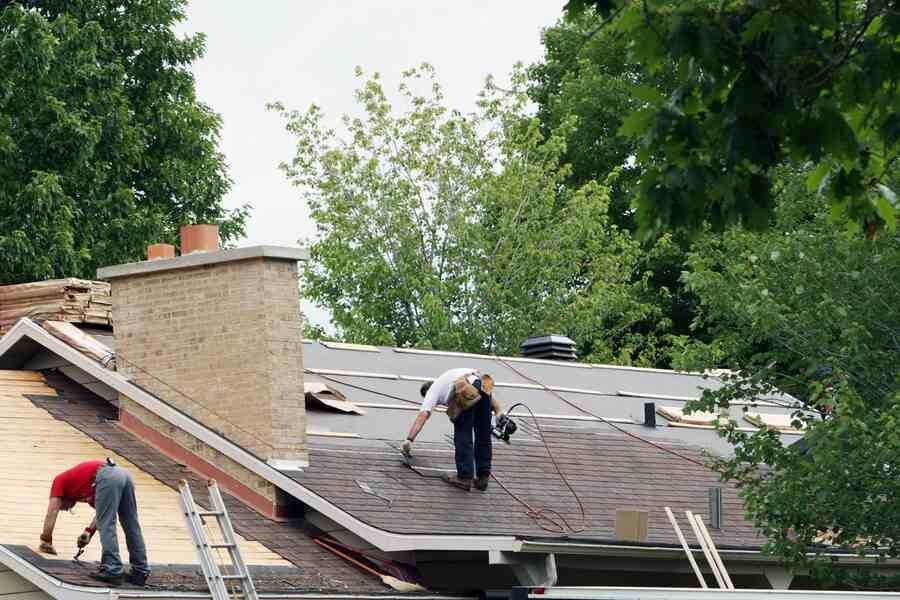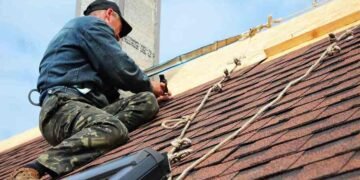When it comes to home construction, some aspects are luxuries, while others are absolute necessities. Roofing is one of the most necessary aspects. As a result, people need to have high-quality roofs installed because a lot depends on it. Some of the reasons why this is important are because it ensures:
- Safety of lives and properties within the building
- Enhanced property value
- Structural integrity
- Durability
- Energy-efficiency
- Protection from unfavorable weather conditions
- Aesthetic appeal
- Satisfaction
The aforementioned all point to the fact that high-quality roofing is a necessity. However, several other reasons why it is important exist.
In the spirit of ensuring high-quality roofing, people need to understand the process of roof installation in their location. This is why this article will discuss how the process is supposed to unfold in Boston. Furthermore, tips on choosing the right roofer for such tasks in Boston will also be shared here.
Boston Roofing Installation Explained

Discussed below is the step-by-step procedure particularly for roofing installation in Boston:
Roof Inspection
For the record, there are two kinds of projects that require this service – New building construction and roof replacement. In the case of new building construction, there is no need for inspection as there was never a roof in the first place.
However, it is different with replacement projects as the idea is to upgrade what is existing. To do this, it is important to assess the state of things. This helps the roofer figure out what needs to be removed or repaired, as opposed to what can still work with the new installation.
Selection of Materials
The kind of project also plays a huge part in the materials that would be purchased and used. For example, an existing asphalt shingles roof would most likely require the purchase of new asphalt shingles.
On the other hand, new building projects would require choosing a preferred roofing type as several options can be engaged in Boston. Some of them include:
- Metal
- Asphalt Shingles
- Wood Shingles/Shakes
- Slate
- Synthetic Materials
- Concrete
- Clay
It is possible to use any of the aforementioned in Boston. However, your decision has to be well-informed because of the distinct peculiarities of all these options. For this reason, you need to fully understand the implications of using all of them.
For example, climatic conditions should be taken into serious consideration before choosing. You can click here to find out other factors that need to be considered when choosing roofing materials.
Securing Permits
There may be a need to obtain permits in adherence to local building codes. It is the responsibility of the roofer to make you aware of this and secure the necessary permits. Failure to do so can be very disadvantageous. In some cases, the installation may have to be taken down as a result of this.
This is especially true when certain codes are not adhered to. By the way, the permits may even have to be secured before the purchase of roofing materials.
Preparation & Installation of Underlayment
In the case of new building constructions, the structural framework that would support the roof will have to be constructed. This has to be done properly, which would entail using the right materials and having these materials properly installed. In the case of roof replacement, there is a need to:
- Clear the area of debris
- Ensure that the areas are not damaged during the installation
- Ensure that the roof’s deck is not compromised
There are several features of high-quality roofs. One such is moisture protection given how moisture is capable of damaging things, especially in the long run.
Well, the underlayment installation is important, especially for this reason as it beefs up the roof’s ability to resist the damaging effects of moisture. For this reason, underlayment installation happens right after the preparation phase.
Installation of Roofing Material
The chosen roofing material will then be properly laid over the installed underlayment. There is no one-size-fits-all approach to this installation process as it largely depends on the type of roofing material.
Flashing & Ventilation
Ventilation and flashing are closely related in the context of roofing. For starters, Boston’s climate requires that airflow is optimized even through the roofing network. This can happen through skylights, vents, and even chimneys.
However, these things can cause water infiltration which is no good in this location, or any other. For this reason, proper flashing work has to be conducted to divert water from these areas.
Speaking of having optimal ventilation even through the roofing network, ridges & hips are also installed for this purpose. It is also a way to make the roof have a finishing appearance.
Cleanup
There are bound to be leftover materials, debris, and other unwanted stuff on the roof and around the property after the installation. A good enough roofing company will make sure to tidy things up.
Inspection
There is supposed to be a final inspection. This is to ensure that everything checks out.
Choosing a Roofer
The chances of having a top-quality roof are largely dependent on the roofer that is engaged. As a result, choosing the right roofer is a necessity. To this end, here are some selection tips:
Local Options
Local knowledge is important for roofing projects. As a result, it is best to engage local but reputable roofing Boston services when the need for roofing installation arises here. For example, they are usually more aware of permits to be secured and the best materials for coping with local climatic conditions.
Licensing
Only consider duly licensed roofers. This calls for knowledge of the local licensing body as well.
Expertise and Experience
Some roofers are more into certain projects than others. For example, some are more into the installation of asphalt shingle roofs than metal roofs.
So, choose a roofer that specializes in handling your kind of project. Furthermore, make sure the roofer is experienced and has a reputation to protect.
Warranty
The right roofer would be very certain of the quality of the installed roof. The certainty should be reflected in having no problems offering a reasonable warranty.
Conclusion
Every residential, commercial, and industrial building needs high-quality roofing. To this end, roof installation processes and tips on choosing the right roofing company have been discussed here. These details should be taken seriously going forward.
Recommended Posts:














